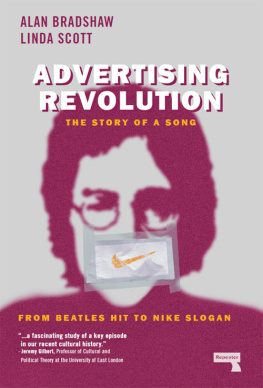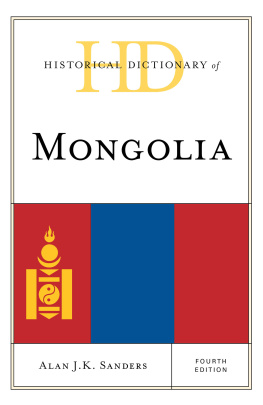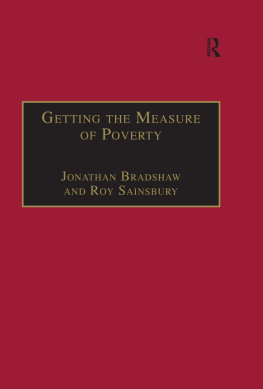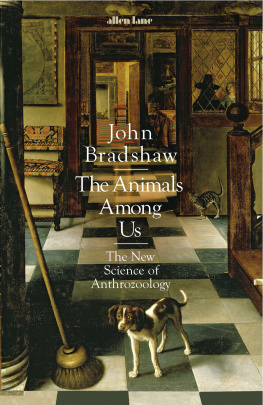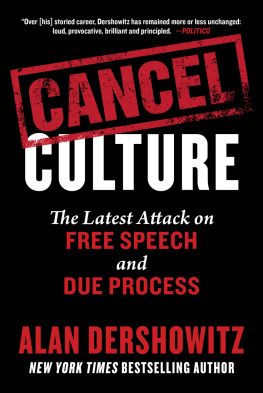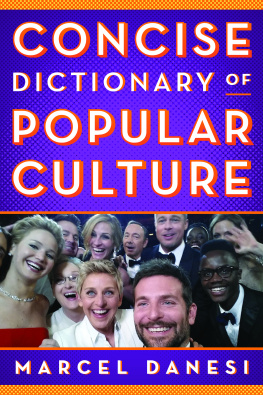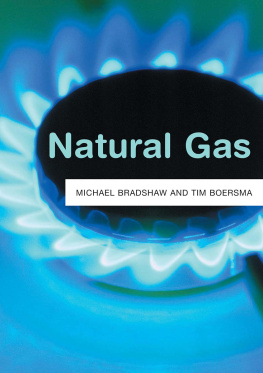Alan Bradshaw - The Dictionary of Coronavirus Culture
Here you can read online Alan Bradshaw - The Dictionary of Coronavirus Culture full text of the book (entire story) in english for free. Download pdf and epub, get meaning, cover and reviews about this ebook. year: 2020, publisher: Watkins Media, genre: Politics. Description of the work, (preface) as well as reviews are available. Best literature library LitArk.com created for fans of good reading and offers a wide selection of genres:
Romance novel
Science fiction
Adventure
Detective
Science
History
Home and family
Prose
Art
Politics
Computer
Non-fiction
Religion
Business
Children
Humor
Choose a favorite category and find really read worthwhile books. Enjoy immersion in the world of imagination, feel the emotions of the characters or learn something new for yourself, make an fascinating discovery.
- Book:The Dictionary of Coronavirus Culture
- Author:
- Publisher:Watkins Media
- Genre:
- Year:2020
- Rating:4 / 5
- Favourites:Add to favourites
- Your mark:
- 80
- 1
- 2
- 3
- 4
- 5
The Dictionary of Coronavirus Culture: summary, description and annotation
We offer to read an annotation, description, summary or preface (depends on what the author of the book "The Dictionary of Coronavirus Culture" wrote himself). If you haven't found the necessary information about the book — write in the comments, we will try to find it.
The Dictionary of Coronavirus Culture — read online for free the complete book (whole text) full work
Below is the text of the book, divided by pages. System saving the place of the last page read, allows you to conveniently read the book "The Dictionary of Coronavirus Culture" online for free, without having to search again every time where you left off. Put a bookmark, and you can go to the page where you finished reading at any time.
Font size:
Interval:
Bookmark:


Published by Repeater Books
An imprint of Watkins Media Ltd
Unit 11 Shepperton House
89-93 Shepperton Road
London
N1 3DF
UK
www.repeaterbooks.com
A Repeater Books ebook original 2020
Copyright Repeater Books 2020
Ebook ISBN: 9781913462437
All rights reserved. No part of this publication may be reproduced, stored in a retrieval system, or transmitted, in any form or by any means, electronic, mechanical, photocopying, recording or otherwise, without the prior permission of the publishers.
This book is sold subject to the condition that it shall not, by way of trade or otherwise, be lent, re-sold, hired out or otherwise circulated without the publishers prior consent in any form of binding or cover other than that in which it is published and without a similar condition including this condition being imposed on the subsequent purchaser.
Alan wishes to dedicate this book to Felicity-Jean who, despite her lost summer with Granny and Harry, was exceptionally good and patient while her dad worked on this project. Thank you!
Joel wishes to dedicate this book to Heidi for all the social distancing she did while he was editing, and to his parents for everything.
Contents
Introduction
Alan Bradshaw and Joel Hietanen
In Leicester on St Patricks Day, Alan received a telephone call to say that his daughter had been coughing at school, was being sent home, and that as per the guidelines of the British government, the whole household should now enter quarantine. Meanwhile, 2,800 kilometres away in Helsinki, Joel was deciding to withdraw into his own apartment. A mounting news story that originated far away in Wuhan, then steadily moved closer over the following weeks, had finally arrived at our collective doors, and we found ourselves part of the greatest global event of our lifetimes lockdown.
Sitting at home, wondering how to manage our time, we decided to attempt a venture that we had casually considered previously a podcast. We immediately decided upon the name Quarantined Market Podcast , that we would take inspiration from Raymond Williams 1976 classic Keywords by identifying a concept, preferably one within the parlance of the lockdown experience (streaming, social distancing, virus), invite an academic colleague to explore the concept with us, then think speculatively about how the term reappears during coronavirus and lockdown. We wanted to contextualise the concepts for our historical moment, but not to force them onto anything in ways that might dull their potential of discovery. We wanted to examine these concepts in the now, but equally, to let them tell us of the now in moving ways.
We were apparently part of a tidal wave of middle-aged white men who simultaneously decided that the world needed to hear our thoughts via the medium of podcasts. But also, and hopefully a little bit more redemptively, it was an opportunity to discuss ideas with friends and colleagues who we were now remote from, not knowing how long for. Like many scholars in lockdown who were forced to quickly adapt to a world now largely without physical togetherness in terms of teaching, collaboration and administration, we were struggling to maintain our concentration and focus on academic work, and found that podcast discussion was an activity that suited our new frame of mind. It did indeed seem to be the case that guests enjoyed speaking with us and that it was a very welcome distraction from quarantine all round. Eventually we recorded thirty-five episodes, overcoming all sorts of teething problems with audio and WIFI quality along the way, mostly through Joels gradually expanding editing skills. While everybody did their best to maximise audio quality, the static that at times seeped into the background, the unmistakable noises of children seeking attention, pets at play, and the bustle of domestic life in lockdown, reminded us that this was entirely beyond the normal forms of academic encounter. The recordings were always personable and friendly. We were glad to be doing them, even if feeling the urgency of being able to bring something about in a situation of unspecified duration.
Mostly we spoke to colleagues about areas that they had been researching for many years. In other cases, we invited guests to think through phenomena that they had not formally considered before. For example, our discussions with Seth Wheeler and Will Large address clapping and social distancing, respectively. In some instances, despite working closely with some of the guests for many years, we had never had occasion to seriously talk with them about their scholarship. The series of conversations that followed were as much about friendship, of the warm social world of academics, and the pleasures in discussing and probing the ideas of our colleagues and of appreciating their work, as they were about coronavirus and lockdown.
We transcribed the podcasts and edited them down to about 1,500 words each. We removed our questions. What you will find in this book is a dictionary of coronavirus culture that will easily allow people to dip in and out. Each piece has been edited to read like a ghost-written newspaper article in the sports pages. Everything has been edited and re-arranged to fit. Where possible, we attempted to leave in the personality of the author. It is conversational in tone, whilst always addressing bigger conceptual questions hopefully hitting the sweet spot between the presentation of complex thinking and conversational and accessible language. Readers can find the original podcasts here: https://soundcloud.com/qmp-790368337
Perhaps most of all, the book presents a sort of oral history that reminds us what kinds of thoughts people had during lockdown. Coronavirus is, after all, an event that clearly carries mammoth implications for just about everything. Its totally unclear what sort of society and economy shall follow it. During lockdown, people seemed to be more reflective than usual. This book captures what its like to be at home, quarantined, imagining future alternatives. It arrests a moment in time, when lockdown was a novelty and history appeared wide open, and when people were allowing themselves to imagine better political programmes. As history shifted, so too we expanded our net of what was relevant suddenly George Floyd was murdered and black struggle and toppling statues became part of the pandemic parlance.
A number of issues recurred in the discussions. Suddenly not so bounded by consumerism and work, there was an opportunity to reconsider subjectivity that is, how the daily flows and class experience of our organised lives as workers and consumers lead us to conduct ourselves as though we are a certain type of person. Now that flows of familiar habits and mundane excitements had been disrupted, a lot of rumination on the subjective experience of personhood occurred, both regarding positions of solitude and possible communality. Similarly, there was recurring discussion around the idea of accelerated societal change; that the contradictions of capitalism might all abruptly come to a head and force society at large to finally respond at a more substantial and realistic level, rather than at the piecemeal and illusory level that consumer culture always manages to embed in its workings (every revolution will be televised then packaged and adjourned). There was plenty of thought about the overlap of culture and nature, of mental health, of inequality, of racial segregation. A common recurring question was that of grieveability how it didnt seem to matter that certain people were increasingly put at risk and dying en-masse, or that anybody was dying at all; as though society was becoming numb, or maybe even indifferent, to the spectacle of mass death. It is strikingly sobering to realise how we have increasingly moved from bodies that count to body counts, as per one of our more grave conversations with Holly Lewis. Also recurrent was the disturbing idea that the pandemic was merely one of several mounting stages of climate changes unfolding as the true crisis, with the pandemic a mere precursor of more impending terror.
Next pageFont size:
Interval:
Bookmark:
Similar books «The Dictionary of Coronavirus Culture»
Look at similar books to The Dictionary of Coronavirus Culture. We have selected literature similar in name and meaning in the hope of providing readers with more options to find new, interesting, not yet read works.
Discussion, reviews of the book The Dictionary of Coronavirus Culture and just readers' own opinions. Leave your comments, write what you think about the work, its meaning or the main characters. Specify what exactly you liked and what you didn't like, and why you think so.


